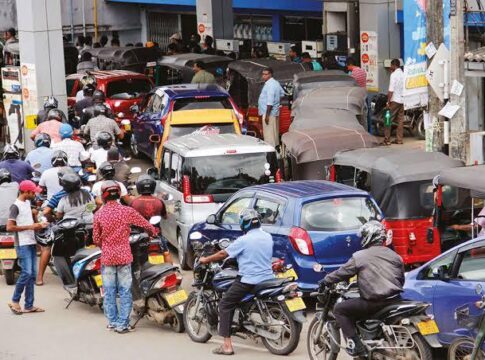Over 400 petrol stations near Nigeria’s borders remain shut five years after the government banned fuel supply in these areas. The move, aimed at curbing petrol smuggling to neighboring countries, has sparked a dispute between independent marketers and the Nigeria Customs Service (NCS).
The Customs insists the closures will continue under Operation Whirlwind, a crackdown on smuggling that has intensified following severe fuel shortages in Niger Republic. Meanwhile, marketers warn that businesses are collapsing, and thousands of jobs have been lost due to the prolonged shutdown.
Customs Defends Crackdown as Niger’s Fuel Prices Soar
Fuel shortages in Niger Republic have driven petrol prices to a staggering ₦8,000 per litre, raising concerns over a resurgence in smuggling. The landlocked country previously depended on Nigeria for nearly 50% of its fuel supply, but the removal of Nigeria’s fuel subsidy in 2023 has disrupted the black-market trade.
The NCS spokesperson, Abdullahi Maiwada, insists that border fuel stations will remain closed to prevent economic sabotage. “We are seizing smuggled fuel across all border states, from Adamawa to Kebbi and Seme. We will not allow fuel to leave Nigeria illegally,” he said.
READ MORE: Abuja Set For Historic Spiritual Gathering As Pastor Chris Oyakhilome Returns After 19 Years
Authorities have also begun prosecuting suspected smuggling kingpins, with several cases pending in courts, particularly in Adamawa State.
Marketers Demand Reopening, Say Businesses Collapsing
Independent marketers argue that the government’s policy, implemented in 2019 under President Muhammadu Buhari, has already achieved its goal. With subsidy removal making petrol prices nearly uniform across West Africa, they say the closure of over 400 filling stations is no longer justified.
Chinedu Ukadike, spokesperson for the Independent Petroleum Marketers Association of Nigeria (IPMAN), claims the policy violates the Petroleum Industry Act (PIA). “We support anti-smuggling efforts, but keeping legal stations shut punishes law-abiding businesses and communities,” he said.
Ukadike urged authorities to replace blanket closures with stricter border patrols. “Customs should focus on intercepting smuggled tankers, not shutting down licensed stations where Nigerians buy fuel legally,” he added.
Niger’s Refinery Struggles to Meet Demand
With smuggling routes cut off, Niger Republic has faced fuel shortages since early March. The country’s sole refinery in Zinder, originally designed to supply only 50% of domestic demand, is now under immense pressure.
Sonidep, Niger’s state oil company, reports it supplies only 25 tanker trucks of petrol daily, despite demand nearly doubling. “The black market once supplied half of Niger’s fuel. Now, we can’t meet demand,” said Maazou Oumani Aboubacar, Sonidep’s Commercial Director.
What Next for Border Communities?
While the Customs insists the closures will continue, pressure is mounting for a policy review. Industry experts argue that a controlled reopening of border filling stations, coupled with enhanced monitoring, could balance national security with economic stability.




